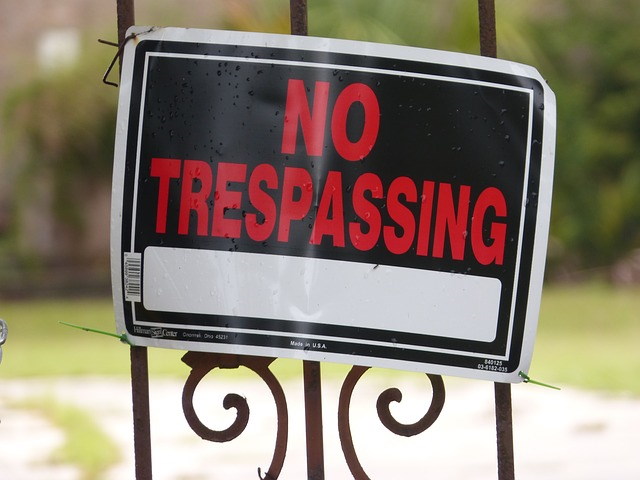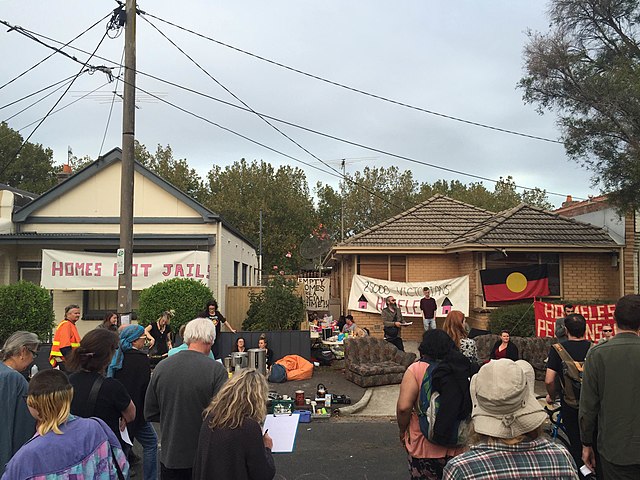
Squatting, the act of occupying an abandoned or vacant property without permission, is an issue that often sparks debates over property rights, legal responsibilities, and social justice. For many, squatting can seem like a way to secure a place to live, especially in situations where affordable housing is hard to find. However, squatting is also a legal grey area in many parts of the world, and individuals who engage in squatting may face significant legal consequences. In this post, we’ll explore the key legalities surrounding squatting, how squatting laws differ by region, and what you should know if you find yourself dealing with a squatter or considering squatting as an option.
What Is Squatting?
Squatting is the act of taking possession of an unoccupied or abandoned property without the permission of the legal owner. Often, squatters move into vacant homes, buildings, or land that is not being actively used. While some may see it as a form of protest, others may view it as a way to survive, particularly in urban areas where housing can be prohibitively expensive.
It’s important to distinguish squatting from other types of unauthorized occupation, such as trespassing. Squatting usually involves longer-term occupation, whereas trespassing refers to someone entering a property without permission for a short period.
Is Squatting Illegal?
The legality of squatting depends on several factors, including the jurisdiction, the length of time the property has been occupied, and the status of the property in question. While squatting is often illegal, the specific laws governing squatting vary from one country to another, and in some cases, from one state or region to another within a country.
For example, in the United States, squatting is generally considered illegal. Property owners can take legal action to evict squatters, especially when they have clear ownership rights to the property. However, the legal process can be complex, and squatters may have certain legal defenses depending on their situation.
Adverse Possession: A Legal Loophole?
One of the most important legal concepts related to squatting is adverse possession, which allows squatters to gain legal ownership of a property under specific circumstances. In essence, adverse possession provides a way for someone who occupies a property for an extended period (often many years) to claim ownership if the property owner has not taken legal action to reclaim it.
The exact requirements for adverse possession vary by jurisdiction, but common elements include:
- Continuous possession: The squatter must occupy the property continuously for a specified period, which can range from several years to decades.
- Exclusive possession: The squatter must treat the property as if they are the rightful owner, excluding others from using it.
- Open and notorious: The squatter must occupy the property openly, so the true owner can reasonably notice the occupation.
- Hostile possession: The squatter must occupy the property without the permission of the owner. This doesn’t necessarily mean hostility in the literal sense but rather a lack of consent.
- Without permission: The squatter must occupy the land or building without the owner’s consent and without any formal lease or rental agreement.
In the United Kingdom, adverse possession is governed by laws that require squatters to occupy a property for a minimum of 10 years before they can apply for ownership, provided the conditions mentioned above are met.
Adverse possession is a controversial concept because it can sometimes reward squatters who occupy a property for long periods without the owner taking action. For property owners, it emphasizes the importance of regularly checking on their properties, particularly vacant ones.
The Legal Process of Eviction
For property owners dealing with squatters, the legal process of eviction can be lengthy and costly. In many cases, an owner must first go through a legal procedure to formally notify the squatter that they are trespassing and must leave the property. If the squatter refuses, the property owner may need to file for an eviction in court.
Eviction laws vary by jurisdiction, but in general, property owners must prove that they are the rightful owners of the property and that the squatter has no legal right to remain there. This can be a complex process, especially if the squatter claims adverse possession or if they have lived on the property for a long time.
Some areas may have more lenient squatters’ rights, particularly if the property owner has neglected the property or if the squatter can show they have invested in maintaining or improving the property during their occupation.
Squatters’ Rights vs. Property Rights
In some cases, the law may seem to favor squatters over property owners. This is especially true in cases where squatters have occupied a property for an extended period. In these situations, the legal system may prioritize the rights of the person occupying the property, especially if the property has been left unoccupied for a long time.
This has led to debates about the balance between the rights of property owners and the need to protect those who are homeless or otherwise unable to secure housing. While the law generally protects property rights, squatters may argue that they are providing a valuable function by preventing vacant properties from becoming eyesores or being subject to vandalism.
How to Prevent Squatting
For property owners concerned about squatters, there are several steps that can be taken to prevent squatting from occurring in the first place:
- Secure the Property: Ensure that all doors and windows are securely locked and that the property is fenced off or otherwise inaccessible.
- Regular Inspections: If you own a vacant property, regularly check on it to ensure no one has moved in. This can also prevent damage from weather or vandalism.
- Use Security Systems: Install security cameras or alarm systems to deter squatters from entering the property.
- Maintenance and Visibility: Maintaining the property, even if you are not using it, can give the impression that the property is occupied or being cared for, making it less likely to attract squatters.
- Legal Actions: If you suspect squatters are occupying your property, take prompt legal action to address the issue before it escalates.

Squatting as a Social Issue
In many cities around the world, squatting is not just a legal issue but a social one. High rates of homelessness, the availability of vacant properties, and rising real estate prices all contribute to the prevalence of squatting in certain areas. Some argue that squatting is a form of protest against societal inequality, while others contend that it is a response to the lack of affordable housing options.
In some cases, cities have sought to address squatting by providing legal protections for certain types of squatting or by creating systems of “temporary use” agreements. These systems allow squatters to stay in vacant properties legally under specific conditions, such as contributing to the maintenance of the property or providing services to the community.
Conclusion
Squatting is a complex issue with both legal and social implications. Whether you are a property owner or a potential squatter, it’s important to understand the laws in your jurisdiction and the possible consequences of squatting. Property owners must be proactive in protecting their rights and preventing squatters from occupying their properties, while squatters should be aware of the potential legal risks they face.
In the end, while squatting may provide a temporary solution for some, it’s crucial to approach the issue thoughtfully, considering the broader legal, social, and ethical questions at play. If you are involved in a squatting situation, it is recommended to consult a legal expert to understand your rights and responsibilities better. Take a moment to explore Tech Behind It for valuable insights and important details regarding the legal aspects of squatting.
